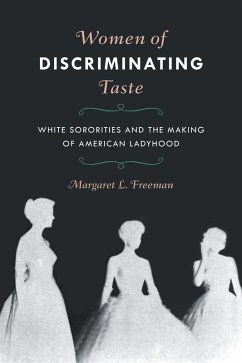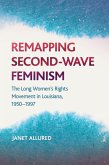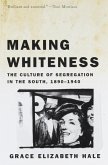Women of Discriminating Taste examines the role of historically white sororities in the shaping of white womanhood in the twentieth century. As national women's organizations, sororities have long held power on college campuses and in American life. Yet the groups also have always been conservative in nature and inherently discriminatory, selecting new members on the basis of social class, religion, race, or physical attractiveness. In the early twentieth century, sororities filled a niche on campuses as they purported to prepare college women for "ladyhood." Sorority training led members to comport themselves as hyperfeminine, heterosocially inclined, traditionally minded women following a model largely premised on the mythical image of the southern lady. Although many sororities were founded at non-southern schools and also maintained membership strongholds in many non-southern states, the groups adhered to a decidedly southern aesthetic-a modernized version of Lost Cause ideology-in their social training to deploy a conservative agenda.
Margaret L. Freeman researched sorority archives, sorority-related materials in student organizations, as well as dean of women's, student affairs, and president's office records collections for historical data that show how white southerners repeatedly called upon the image of the southern lady to support southern racial hierarchies. Her research also demonstrates how this image could be easily exported for similar uses in other areas of the United States that shared white southerners' concerns over changing social demographics and racial discord. By revealing national sororities as significant players in the grassroots conservative movement of the twentieth century, Freeman illuminates the history of contemporary sororities' difficult campus relationships and their continuing legacy of discriminatory behavior and conservative rhetoric.
Margaret L. Freeman researched sorority archives, sorority-related materials in student organizations, as well as dean of women's, student affairs, and president's office records collections for historical data that show how white southerners repeatedly called upon the image of the southern lady to support southern racial hierarchies. Her research also demonstrates how this image could be easily exported for similar uses in other areas of the United States that shared white southerners' concerns over changing social demographics and racial discord. By revealing national sororities as significant players in the grassroots conservative movement of the twentieth century, Freeman illuminates the history of contemporary sororities' difficult campus relationships and their continuing legacy of discriminatory behavior and conservative rhetoric.
Dieser Download kann aus rechtlichen Gründen nur mit Rechnungsadresse in A, D ausgeliefert werden.









